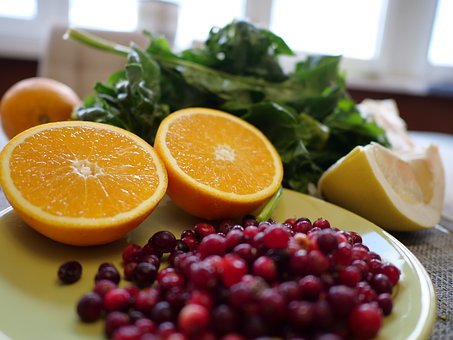Fruit Interacting With Medicines
The effect of specific fruit-based compounds on certain prescription drugs is a serious issue for anyone taking medication. While eating a diet rich in a variety of fruits is nutritious and healthful, the chemical compounds inside certain fruits can expedite, delay or inhibit your body’s rate of drug absorption. Identifying potential fruit-drug interactions allows you to make smarter dietary choices without altering the effects of your medication.
GRAPEFRUIT, SEVILLE ORANGES AND POMELO ORANGES
Grapefruit, Seville oranges and pomelo oranges contain furanocoumarin derivatives, a naturally occurring group of chemicals that prevents your body from breaking down certain medicines. According to MayoClinic.com, these three citrus fruits are known to interact poorly with a variety of drugs including antidepressants, anti-retroviral, anti-seizure, calcium channel blockers, immunosuppressants, antihistamines and statins. Inadequately digesting these drugs forces your body to absorb higher amounts of the prescribed medication. Increasing your body’s rate of drug absorption also increases the severity of any side effects associated with the medicine.
HIGH-TYRAMINE FRUITS
Tyramine is a naturally occurring amino acid that helps regulate your blood pressure. According to the U.S. Food and Drug administration, eating high-tyramine fruits such as raspberries can reduce the effects of blood pressure medication. Another dangerous drug interaction occurs between high-tyramine fruits and first-generation antidepressant drugs, also known by the acronym MAOI. MAOIs block an enzyme known as monoamine oxidase which breaks down extra tyramine in your body. Eating high-tyramine fruits while taking this type of medication prevents your body from flushing the excess chemical, resulting in dangerous spikes in your blood pressure.
CRANBERRIES
Experts debate the exact link between cranberries and anticoagulant drugs, like Coumadin, but some doctors caution it increases the effects of blood thinning medication. Other doctors report this link to be faulty, but Dr. Mary Paine at the University of North Carolina-Chapel Hill says studies which found no link between the two studied cranberry drinks with low concentrations of pure cranberry juice. Despite the disagreement over the interaction, the U.S. Food and Drug Administration considers the risk of bleeding severe enough to advise against consuming cranberries or cranberry juice while taking blood-thinning medication.
PREVENTING FRUIT-DRUG INTERACTIONS
Potential interactions between your medications and certain fruits underscores the importance of reading the drug information pamphlet attached to your prescription refill. Educating yourself about each possible interaction helps you recognize harmful interactions immediately. Discuss any concerns you have about eating certain fruit while taking prescription medication with your doctor.
REFERENCES
- https://www.drugs.com/drug-interactions/coumadin-with-cranberry-2311-1529-750-0.html
- https://www.fda.gov/media/79360/download
- https://www.mayoclinic.org/healthy-lifestyle/consumer-health/expert-answers/food-and-nutrition/faq-20057918
- https://www.mayoclinic.org/diseases-conditions/depression/expert-answers/maois/faq-20058035
- https://familydoctor.org/drug-food-interactions-how-grapefruit-interacts-with-certain-drugs/
